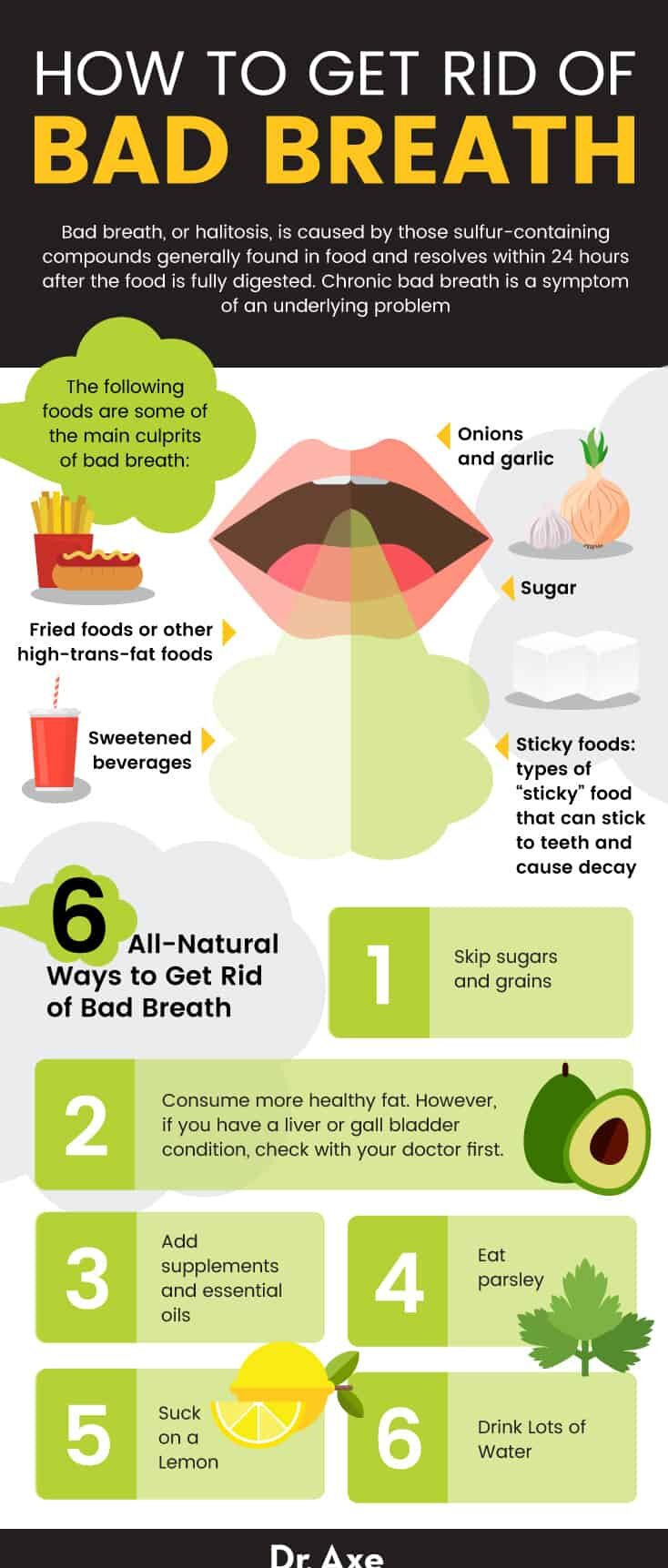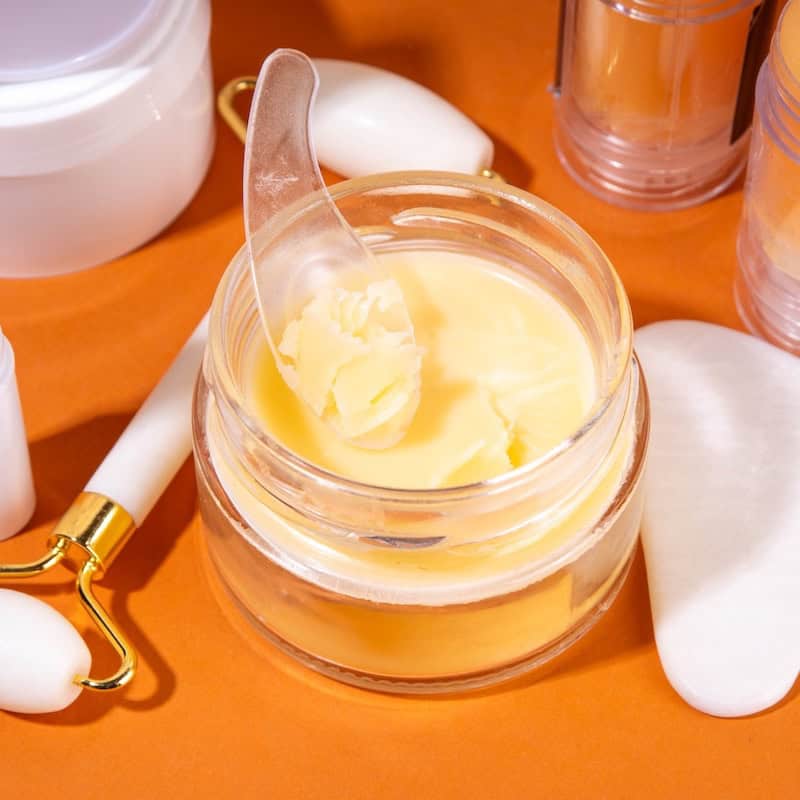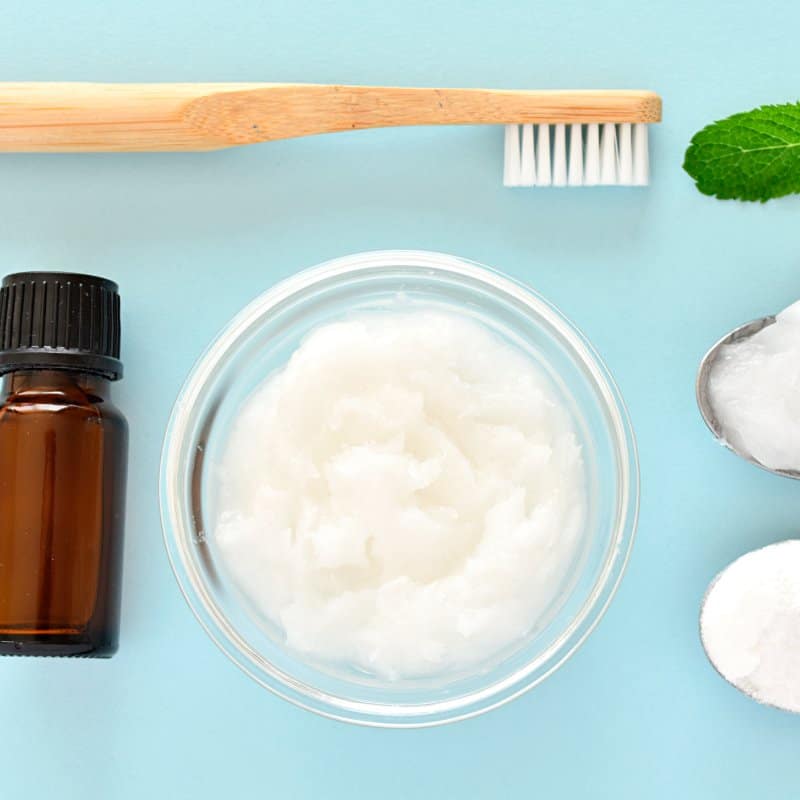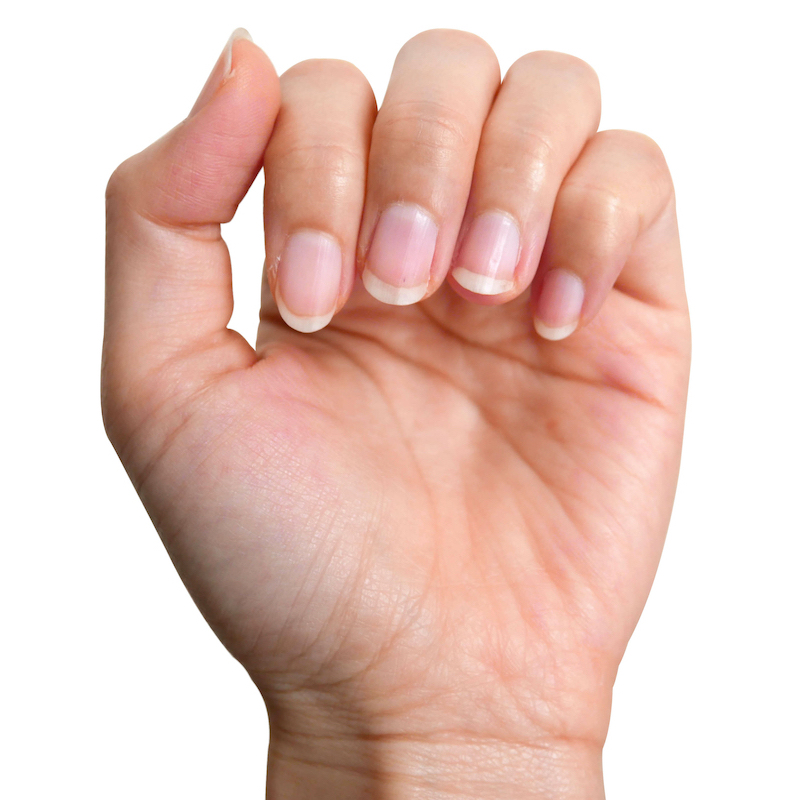This Dr. Axe content is medically reviewed or fact checked to ensure factually accurate information.
With strict editorial sourcing guidelines, we only link to academic research institutions, reputable media sites and, when research is available, medically peer-reviewed studies. Note that the numbers in parentheses (1, 2, etc.) are clickable links to these studies.
The information in our articles is NOT intended to replace a one-on-one relationship with a qualified health care professional and is not intended as medical advice.
This article is based on scientific evidence, written by experts and fact checked by our trained editorial staff. Note that the numbers in parentheses (1, 2, etc.) are clickable links to medically peer-reviewed studies.
Our team includes licensed nutritionists and dietitians, certified health education specialists, as well as certified strength and conditioning specialists, personal trainers and corrective exercise specialists. Our team aims to be not only thorough with its research, but also objective and unbiased.
The information in our articles is NOT intended to replace a one-on-one relationship with a qualified health care professional and is not intended as medical advice.
How to Get Rid of Bad Breath, aka Halitosis: 13 Remedies
November 17, 2023

About 30 percent of adults suffer from ongoing bad breath at some point in their lives. Bad breath is not only embarrassing, it can sometimes also be a sign of a serious health problem — although, in most cases, it’s not.
Chronic bad breath — also known as halitosis — is something that absolutely nobody wants to deal with, and often is a sensitive topic. If you want to know how to get rid of bad breath, first it’s important to understand the actual underlying causes of this condition.
Typically, bad breath is caused from bacteria buildup within your mouth. While certain foods like garlic or onions may sometimes give you temporary bad breath, these are not usually the cause of chronic bad breath. Having bad breath on a regular basis is actually due to factors like yeast and candida overgrowth in your body.
Here are some top tips on how to get rid of bad breath fast — including dietary changes, supplements and essential oils that can all be used to freshen your breath naturally.
Once you rule out any underlying problems that may possibly be causing your bad breath, you have a few options to consider for ridding yourself (and your loved ones) of this all too common problem.
What Is Bad Breath?
Bad breath is a way of describing unpleasant-smelling odors coming from the mouth, also known as halitosis if it’s a chronic condition.
At one time or another, just about everyone suffers from at least a few cases of bad breath. Sometimes the cause is something you’ve eaten; other times it comes from the bacteria found in your mouth.
Volatile sulfur compounds (VSCs) are the major contributing factor to oral malodor (another term for bad breath), which can arise from the breakdown of food, dental plaque, oral disease and other factors.
Common Causes
A common misconception about bad breath is that it originates in the gut or stomach. This is a myth. Generally speaking, bad breath comes from the back of the tongue, throat, tonsils, teeth and gums. This is where naturally occurring bacteria are found that can give off sulfur-containing compounds, resulting in bad breath.
In the case of gum disease (also known as periodontal disease, which is an infection of the gums and teeth), bad breath is common because bacteria proliferate below the surface of the gums where they cause inflammation and release sulfur compounds.
Food particles stuck in the mouth can also cause foul-smelling odors. Temporary bad breath is usually caused by bacteria and smelly compounds found in certain food that resolves within 24 hours after the food is fully digested.
You might also wake up with bad “morning breath” because bacteria have become dry overnight, and this makes them respond with increased activity.
Foods to avoid that can trigger bad breath include:
- Onions and garlic — These are the most problematic foods for bad breath; while both are very healthy, if you’re heading to an event and want to avoid the bad breath, avoid or use them in moderation.
- Fried foods or other high-trans-fat foods — These foods take a long time to move through the digestive system, therefore producing halitosis.
- Sugar — Sugar leads to tooth decay and gum disease, contributing to halitosis.
- Sticky foods — Avoid caramels or other types of “sticky” food that can stick to teeth and cause decay.
- Sweetened beverages — Sugary drinks coat your teeth with sugar, and many of us don’t think to brush after we consume them.
Chronic bad breath, however, is more of a symptom of an underlying problem. Causes of chronic bad breath can include:
- Accumulation of bacteria in the mouth, such as due to poor oral hygiene
- Poor diet
- Gum disease/periodontal disease
- Tooth decay
- Chronic dry mouth (stagnation of saliva)
- Trapped food particles in the mouth
- Older age
- Smoking and tobacco use
- Poorly fitting dental appliances
- Yeast infections of the mouth
- Untreated dental caries (cavities)
- Sometimes more serious medical conditions, such as liver disease or diabetes

Natural Remedies
If you are plagued by a persistent case of bad breath, then try any one or more of these solutions to discover a mouth of freshness.
1. Brush, Floss and Tongue Scrap Daily
First and foremost, make sure to brush your teeth with a natural toothpaste twice daily, and to floss ideally every morning and night. Tongue scraping can also be helpful for removing bacteria from your mouth.
2. See the Dentist Every Six Months
Make sure to treat cavities, cracks in your teeth and poor dental work from your past — such as poorly fit dental fillings or dental crowns that can harbor smelly bacteria.
Your dentist can recommend treatments to help get rid of bad breath, such as tongue scraping (called debridement) or deep gum cleaning techniques called “scaling and root planing that remove stubborn plaque and tartar.
3. Skip Sugars and Grains
One of the first things to address is yeast and candida overgrowth, which can contribute to not only bad breath, but many others symptoms, too. You do that by following a diet that’s lower in sugar and higher in probiotic-rich foods. So if you’re consuming too many processed sugars, grains, white bread, white rice and even whole wheat products, this may be a major contributor to the problem.
Sugars and grains promote the action and growth of many bacteria. Eliminating or reducing your intake of sugar, sugar-laden products and grains will help to eliminate bad breath. Of course, this move can also help you to maintain or lose weight and improve your overall health, too.
You may want to try going completely grain-free and eliminating all sugar from your diet. Replace sugar and processed grains with foods including:
- High-protein foods
- High-fiber foods
- Healthy fats (see below)
- Probiotic-rich foods — some of the best probiotic-rich foods you can add in are things like 24 to 29-hour fermented homemade probiotic yogurt, buying goat milk kefir, sauerkraut, kimchi, kombucha and coconut kefir. Really load up on the probiotic-rich foods to help restore healthy bacteria in your mouth.
- Fermented vegetables — treating candida with fermented vegetables, which are full of probiotics, allows that good bacteria to help overcome the yeast and candida in your body.
- Alkalizing foods — herbs, citrus fruits and vegetables. These provide vitamins A and C, antioxidants that are necessary for healthy teeth and gums.
- Cardamom —Simply chewing on cardamom seeds can help eliminate any bad odors coming from your mouth. A study has even showed the antimicrobial effects of cardamom extracts on oral bacteria.
- Parsley and mint — these decorative green leafy herbs are natural breath fresheners.
- Water — drink at least 8 glasses of water to flush toxins.
- Green tea — may also help to reduce bad breath thanks to its anti-inflammatory and antimicrobial effects.
4. Consume More Healthy Fats
Make sure you’re consuming enough healthy fats — such as from oils like organic, virgin coconut oil or olive oil. Nuts, seeds, avocado, eggs, aged cheeses, fish and meat can also provide healthy fats, helping you to “crowd out” sugar and refined grains. And yes, the truth about saturated fat is that it can be beneficial, so eat a variety of fat-containing foods for optimal gut and digestive health.
Coconut oil contains specific types of fatty acids called medium-chain fatty acids, including lauric acid, capric acid and caprylic acid. These are antimicrobial in nature and supportive of both dental and gut health. However, if you have a liver or gall bladder condition, check with your doctor first before consuming more saturated fats such as coconut oil, since high-fat meals may too hard for you to digest properly.
5. Add Supplements and Essential Oils
The next thing to do is to add certain foods and supplements to your routine to help get rid of bad breath. The first is a probiotic supplement. The second thing you can do is use peppermint essential oil. Studies have found that peppermint oil used as an oral rinse can help reduce halitosis. Peppermint oil mouth rinse is considered a safe formulation without any side effect that is useful in combatting bacteria that cause bad breath.
It’s best to brush your teeth and floss twice daily to keep your mouth clean and prevent food particles from lingering in your teeth and gyms. Consider using this Homemade Probiotic Toothpaste with a mixture of baking soda, coconut oil and peppermint oil. Just a single drop of peppermint oil on your tongue or in your water can help freshen up your breath.
6. Eat Parsley
An aromatic herb that can really, really help in improving your breath is parsley. Parsley isn’t just a pretty garnish, it can be used to effectively treat bad breath.
Part of the reason parsley benefits your breath is because it’s so alkaline in nature. If you are making vegetable juice at home, try using ingredients like parsley, mint and green leafy vegetables such as kale, spinach and Swiss chard. Also drinking cucumber and celery juice may help to improve your breath.
One study found that the alkalizing combination of raw apple, parsley, spinach and mint worked well as a natural treatment for bad breath because it has potential to increase enzyme activity and naturally oxidize and deodorize bad bacteria.
Parsley and many other green plant foods are rich in chlorophyll that helps to neutralize bad breath and acts as a deodorizer. Of course, fresh mint is another herb that helps freshen your breath.
If chewing on a sprig of parsley doesn’t do the trick, then consider dipping it in vinegar first. However, if you like the way mouthwash works but don’t want the associated health risks, try this all-natural remedy for bad breath: Simply boil parsley sprigs, mint and cloves, cool and strain, then use this all-natural mouthwash daily. Drinking green tea with fresh herbs is another great solution for helping to combat bad breath.
7. Chew Fennel Seeds
It is also common in certain cultures to chew fennel seeds after meals to help digestion and eliminate bad breath. Some of the oils found in fennel help stimulate the secretion of digestive juices.
8. Suck on a Lemon
Lemon and water can also play important roles in getting rid of bad breath. Lemon juice has been shown to have phytochemical, antimicrobial and antioxidant activities that can help kill bacteria and fungus, plus reduce inflammation in the mouth.
You can suck on a lemon slice or squeeze a fresh lemon into a glass of water, and get all the benefits of lemon water. This technique is particularly effective when it comes to combating bad breath from onions, garlic and the like. Suck on a lemon slice or squeeze a fresh lemon into a glass of water. Then simply drink the water or gargle with it.
If you’re unable to do either of these, simply place a drop of lemon juice on the tip of the tongue. Lemon will stimulate saliva production which will help to combat bad breath. Having a dry mouth is commonly associated with bad breath, which brings us to the next solution …
9. Drink Lots of Water
A dry mouth can cause bad breath because it’s a breeding ground for bacteria that produce smelly compounds and by-products.
Drinking at least eight eight-ounce glasses of water per day is one of the best ways to keep these bacteria’s actions to a minimum. Often people who have jobs that require a lot of talking (like sales people, teachers, lawyers, etc.) find that they have bad breath as a result of dry mouth. Luckily there’s a simple fix: drink up to combat bad breath.
10. Try coconut oil pulling
Coconut oil pulling can treat many of the symptoms of dry mouth, including bad breath and tooth decay. A number of studies show that this traditional Ayurvedic practice can improve overall oral health and decrease the microorganisms that cause bad breath.
One study points to the lauric acid in coconut oil helping to decrease plaque. When practicing oil pulling, remember not to spit the oil down the drain! Instead, spit it out into a trash can.
11. Stop Using Mouthwash
Will mouthwash get rid of bad breath? One of the most common ways people try to tackle bad breath is by using mouthwash or chewing gum. However, most mouthwashes and gums contain alcohol, artificial sweeteners, dyes and many other ingredients that the consumers should approach with caution.
In some mouthwashes, there’s as much as 27 percent alcohol. This can cause burning sensations in the mouth and feel uncomfortable, especially if you have any open cuts in your gums, cold sores, etc. Another problem with mouthwash is that alcohol-based products only dry out your mouth and create an anaerobic, bacteria-friendly environment which further promotes bad breath.
According to the American Dental Association,” Cosmetic mouthwashes can temporarily mask bad breath and provide a pleasing flavor, but do not have an effect on bacteria or volatile sulfur compounds (VSCs).” (7)
The ethanoyl (alcohol) contained in mouthwash has also been reported to be associated with an increased oral cancer risk in some cases.
12. Do Not Use Tobacco Products
It’s also very important to not smoke or use tobacco products, which will make the disease worse.
13. Deal with Any Digestive Issues
While bad breath typically does not come from the stomach, if you burp often, feel gassy or feel like you can “taste” bad breath coming from your digestive system, then this may mean you need to tackle a problem occurring in your stomach.
Treat digestive issues including acid reflux/heartburn/GERD, food allergies and conditions like candida or SIBO (small intestine bacterial overgrowth). You may need to try an elimination diet, low carb/sugar diet or a low FODMAP diet.
Final Thoughts
- Bad breath, also called halitosis, is a common condition caused by underlying problem, such as: poor oral hygiene, poor diet, gum disease, tooth decay, or other more serious medical conditions such as liver disease or diabetes.
- Bad breath usually starts in the back of the tongue, throat and tonsils. This is where naturally occurring bacteria are found that put off sulfur compounds resulting in bad breath.
- Foods that can help get rid of bad breath include: high-fiber foods, water, parsley, citrus fruits, fresh vegetables and foods high in probiotics.
- Six steps to get rid of bad breath include: skipping sugars and grains, eating more healthy fats, trying supplements and essential oils, eating parsley, sucking on lemon, and drinking lots of water.










